 Series review posts are about looking back, of course. All weekly posts are to an extent, but here it’s not just to an episode, but to an entire series. And when that series is (theoretically) a sequel or a spinoff, all the more so. The matter of whether Double Decker! Doug & Kirill can be called either of those things is something I’ll get to in a minute (spoiler: no), but this finale does put me in mind of one thing – perhaps endings are not the absolute strong point of the Tiger & Bunny writing team.
Series review posts are about looking back, of course. All weekly posts are to an extent, but here it’s not just to an episode, but to an entire series. And when that series is (theoretically) a sequel or a spinoff, all the more so. The matter of whether Double Decker! Doug & Kirill can be called either of those things is something I’ll get to in a minute (spoiler: no), but this finale does put me in mind of one thing – perhaps endings are not the absolute strong point of the Tiger & Bunny writing team.
 That’s not to say this was a bad final episode, or concluding arc. It wasn’t – the finale was pretty rousingly entertaining, and the premise of thr Nikai/Cooper storyline was an interesting one. But while that’s true, the concluding arc was strange, for lack of a better word. Pacing went haywire, credulity started to degrade, and the animation really took a hit (though that’s nether nor there are far as the writing is concerned). Connected or not, that makes two shows produced by this team (albeit with many new members) which didn’t put their best foot forward at the end.
That’s not to say this was a bad final episode, or concluding arc. It wasn’t – the finale was pretty rousingly entertaining, and the premise of thr Nikai/Cooper storyline was an interesting one. But while that’s true, the concluding arc was strange, for lack of a better word. Pacing went haywire, credulity started to degrade, and the animation really took a hit (though that’s nether nor there are far as the writing is concerned). Connected or not, that makes two shows produced by this team (albeit with many new members) which didn’t put their best foot forward at the end.
 Ah, the self-destruct sequence – if anything is a staple of science-fiction, that certainly is. As Cooper sets this one in motion and calls in the bombers to destroy the base for good measure – with mission accomplished he doesn’t need it anymore – Doug’s real plan goes into action. And of course Doug had a plan, and it didn’t involve taking Anthem either. He’s always the smartest guy in the room – the guy who when asked to save the world would “do it by 5:00 and clock out”. This particular plan involves fake antibodies and real Anthem, and the ultimate is for Cooper to incriminate himself on film by doing the latter. And it’s mission accomplished.
Ah, the self-destruct sequence – if anything is a staple of science-fiction, that certainly is. As Cooper sets this one in motion and calls in the bombers to destroy the base for good measure – with mission accomplished he doesn’t need it anymore – Doug’s real plan goes into action. And of course Doug had a plan, and it didn’t involve taking Anthem either. He’s always the smartest guy in the room – the guy who when asked to save the world would “do it by 5:00 and clock out”. This particular plan involves fake antibodies and real Anthem, and the ultimate is for Cooper to incriminate himself on film by doing the latter. And it’s mission accomplished.
 There are no casualties among the good guys here, unless you count Derrick’s bus-bar. That includes Yuri, who turns out to be “alive” after all thanks to a ludicrous and ludicrously convenient coffee spill by Travis. This is a bonkers solution out of left field, but at least we were shown the scene of Travis spilling coffee earlier in the series. Kirill’s narration is the most amusing part of this sequence, coming pretty close to breaking the fourth wall if not doing it outright. It almost seems as if there’s a bit of a verbal tug-of-war going on between Kirill and the narrator here.
There are no casualties among the good guys here, unless you count Derrick’s bus-bar. That includes Yuri, who turns out to be “alive” after all thanks to a ludicrous and ludicrously convenient coffee spill by Travis. This is a bonkers solution out of left field, but at least we were shown the scene of Travis spilling coffee earlier in the series. Kirill’s narration is the most amusing part of this sequence, coming pretty close to breaking the fourth wall if not doing it outright. It almost seems as if there’s a bit of a verbal tug-of-war going on between Kirill and the narrator here.
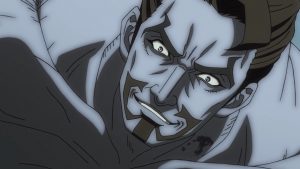 This is all brought off entertainingly enough. Zabel shows up again, this time foiling Cooper’s plan to launch his dummy rocket and alert his colony of what’s happening on Earth. So long, B – and it’s almost so long Doug, too, until he’s saved in perhaps the most left field, bonkers moment in an episode full of them. Whatever grittiness Double Decker had achieved earlier in its run is a mere memory by this point, but maybe this is just closer to what the true identity of the series really is.
This is all brought off entertainingly enough. Zabel shows up again, this time foiling Cooper’s plan to launch his dummy rocket and alert his colony of what’s happening on Earth. So long, B – and it’s almost so long Doug, too, until he’s saved in perhaps the most left field, bonkers moment in an episode full of them. Whatever grittiness Double Decker had achieved earlier in its run is a mere memory by this point, but maybe this is just closer to what the true identity of the series really is.
 What to make of Double Decker! Doug & Kirill as a whole, then? Well first of all, we certainly can’t call it a spinoff or sequel of Tiger & Bunny when there’s no hard evidence it’s even the same mythology. Same aesthetic, maybe (or at least close) but that’s not the same thing. Depending on how one chooses to look at it this was either a series with great tonal diversity or an identity crisis. It started it as a madcap cop show parody, then started to mix in serious, dark and realistic crime episodes (very well), and finished as a flat-out sci-fi blockbuster. I would argue it was less successful in executing the last than the first two.
What to make of Double Decker! Doug & Kirill as a whole, then? Well first of all, we certainly can’t call it a spinoff or sequel of Tiger & Bunny when there’s no hard evidence it’s even the same mythology. Same aesthetic, maybe (or at least close) but that’s not the same thing. Depending on how one chooses to look at it this was either a series with great tonal diversity or an identity crisis. It started it as a madcap cop show parody, then started to mix in serious, dark and realistic crime episodes (very well), and finished as a flat-out sci-fi blockbuster. I would argue it was less successful in executing the last than the first two.
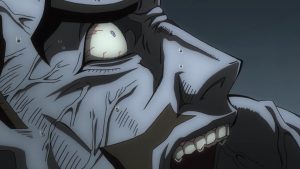 What Double Decker always had going for it – though especially before the animation tanked and the story got outlandish – was a great sense of style and a terrific cast of characters. The art design was fantastic here, and so was the music. The irreverent tone set by the narrator gave the series a jaunty irreverence which it wore like a bespoke suit. The cast of characters at SEVEN-O all had distinct and engaging personalities and story arcs. And at its center the series’ titular characters were worthy successors to Koutetsu T. Kaburagi and Barnaby Brooks. Both were interesting and likeable on their own, and the chemistry as partners between them was always organically genuine. Doug, especially, was one of the more fascinating characters of the season for me – so much so that I wish the series had more time to help us know him better.
What Double Decker always had going for it – though especially before the animation tanked and the story got outlandish – was a great sense of style and a terrific cast of characters. The art design was fantastic here, and so was the music. The irreverent tone set by the narrator gave the series a jaunty irreverence which it wore like a bespoke suit. The cast of characters at SEVEN-O all had distinct and engaging personalities and story arcs. And at its center the series’ titular characters were worthy successors to Koutetsu T. Kaburagi and Barnaby Brooks. Both were interesting and likeable on their own, and the chemistry as partners between them was always organically genuine. Doug, especially, was one of the more fascinating characters of the season for me – so much so that I wish the series had more time to help us know him better.
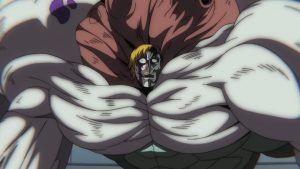 That’s a good place to close on, I think, because one of the issues with this series for me is that it acted like a two-cour for about 10 episodes. Then it was like a panic moment set in, and it realized it had to cram the second into three weeks. I don’t think that actually happened, mind you, but it did play that way. Happily, we did at least get an announcement that Double Decker would be getting a three-episode “bonus story” on streaming and Blu-ray (dates to be announced). More than most series I think it really needs that chance, and I hope we see a return to the series best form as it sets about wrapping up Doug and Kirill’s story.
That’s a good place to close on, I think, because one of the issues with this series for me is that it acted like a two-cour for about 10 episodes. Then it was like a panic moment set in, and it realized it had to cram the second into three weeks. I don’t think that actually happened, mind you, but it did play that way. Happily, we did at least get an announcement that Double Decker would be getting a three-episode “bonus story” on streaming and Blu-ray (dates to be announced). More than most series I think it really needs that chance, and I hope we see a return to the series best form as it sets about wrapping up Doug and Kirill’s story.


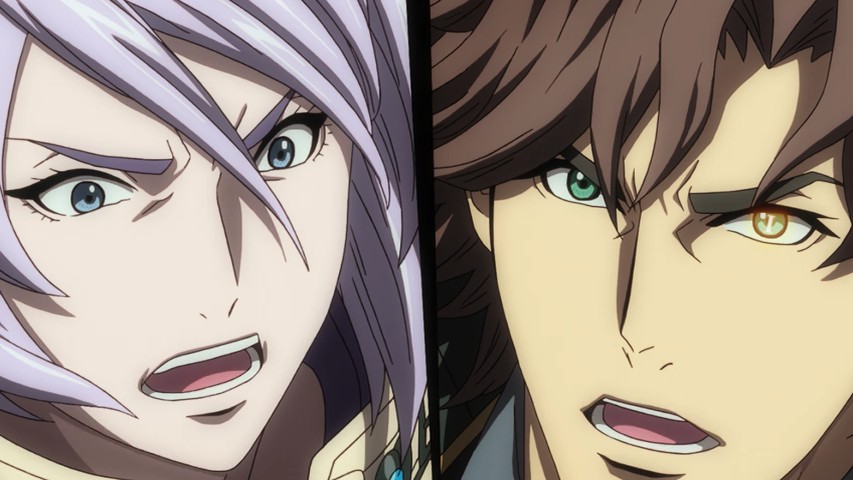





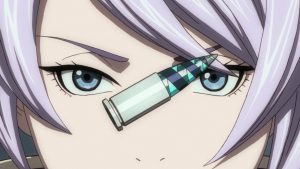

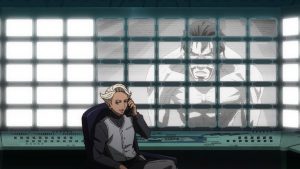

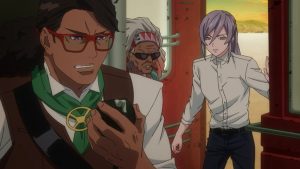
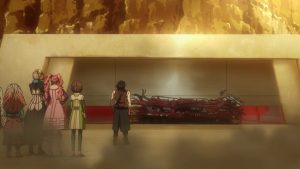






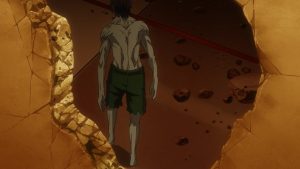

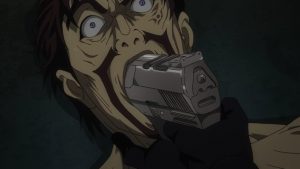
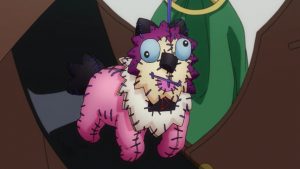

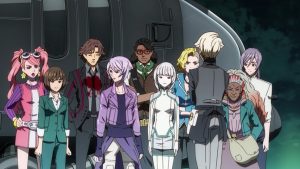
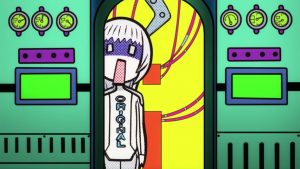
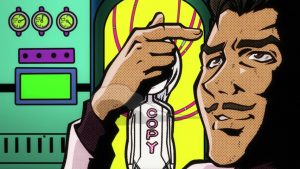
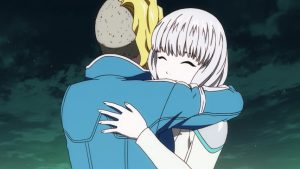



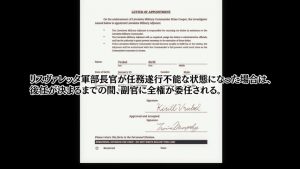




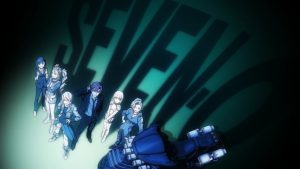

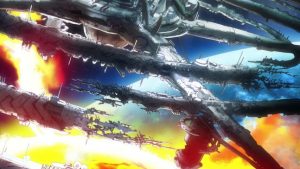

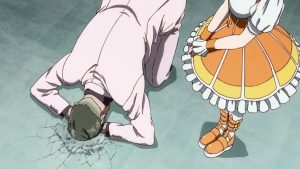
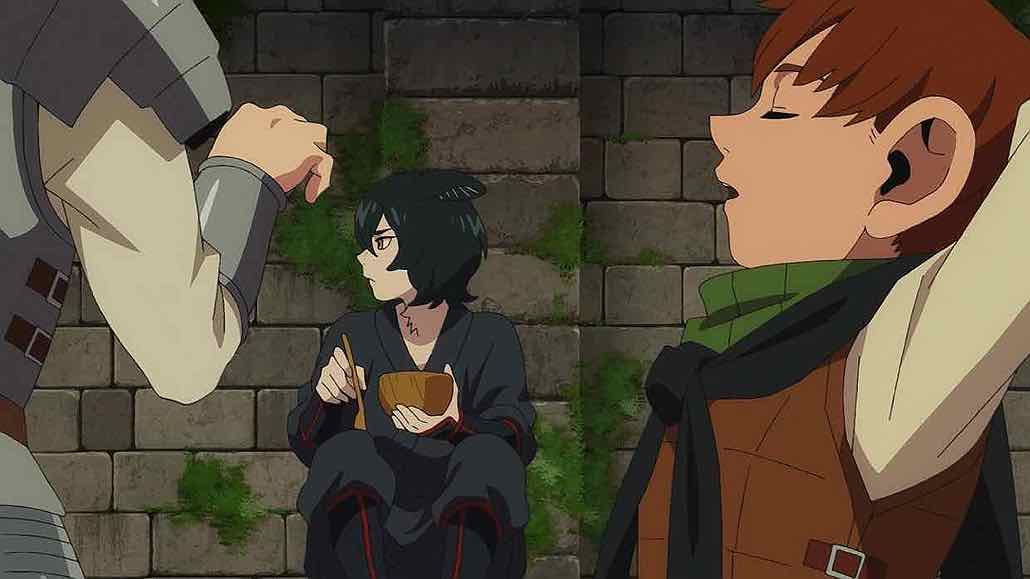

Earthlingzing
December 26, 2018 at 11:06 pmPretty good final episode. The comedy was the best part of the series, but the conclusions to the detective stories are generally logical and well done.